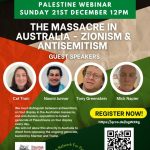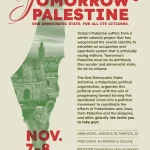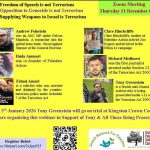Recording here;
ISRAEL-PALESTINE: ARE WE REPORTING FAIRLY?
Online seminar for journalists: Tuesday November 28, 6-7.30pm
The ghastly conflict in Israel-Palestine has filled the media for more than a month. Has the reporting been fair?
This contested land has always been high on the news agenda and tricky to report. The politics are contentious; opinions are sharply divided.
There is pressure on journalists to conform to the lines taken by their publishers. These generally follow the prevalent narrative of a liberal democratic Israel forced to defend itself from Palestinian terrorism.
Now with all-out warfare this conformity has become even more pronounced, with all parties and major news outlets backing Israel. This can endanger accurate and balanced reporting.
There is a string of ubiquitous words and phrases liable to careless overuse such as “terrorist”, “genocide” and “war crimes”. Statements and statistics from one side must carry “terrorism” health warnings while those from the other are adopted unquestioningly.
The war is presented as being against terrorism or a settler-colonial regime; its proponents are anti-semitic or Islamophobic. The slogan “from the river to the sea” is seen as promoting both terrorism and a shared peace: thus the reporting impacts directly the exercise of civil rights here in the UK.
Some who oppose Israel’s assault on Gaza are accused of anti-semitic hate crime. They in turn accuse UK media of condoning Israeli war crimes.
How are journalists to respond to these divergent denunciations?
No political solution is in prospect. For decades the Western approach was said to be based on a “two-state” solution. It was never realistic and is now untenable, yet is now being resurrected. Alternative political initiatives are promoted outside the polarised framework but go unreported.
So what can journalists do? This seminar, presented by the NUJ London Freelance Branch and the Jewish Network for Palestine (JNP) aims to help journalists look beyond the stereotypes.
It will take place on Zoom on Tuesday November 28 from 6 to 7.30pm.
The speakers will be:
Tim Llewellyn, former BBC middle east correspondent
Ghada Karmi, Palestinian journalist and writer
Naomi Wimborne-Idrissi, former Reuter’s bureau chief



